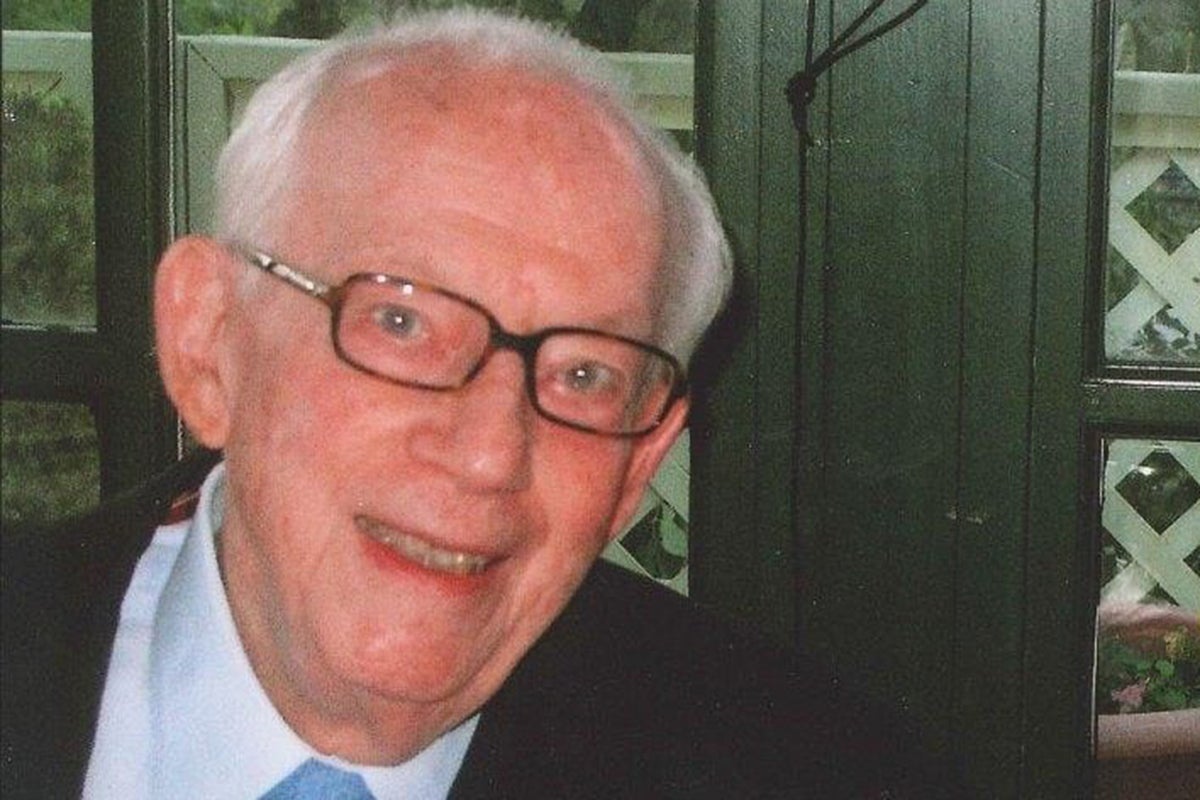Dr Raymond Sackler, pharmaceutical entrepreneur, philanthropist and co-creator of ‘hillbilly heroin’
The New York plutocrat served in the Home Guard and was knighted by the Queen

Raymond Sackler, one of three brothers who built the pharmaceutical company that introduced and marketed the painkiller OxyContin, and who used his wealth with his brothers to become prominent benefactors of science and the arts in the United States and beyond, died on 17 July in Greenwich, Connecticut. He was 97.
Dr Sackler was the youngest and last surviving of three psychiatrist brothers whose names grace museum wings, medical institutes, professorships and academic and cultural prizes in the United States, Europe, Israel and Asia.
His oldest brother, the namesake of the Smithsonian Institution's Arthur M Sackler Gallery of Asian art in Washington, died in 1987. His younger brother, Mortimer D Sackler, died in 2010. Together the brothers funded the Sackler Wing at the Metropolitan Museum of Art in New York City, which features the Temple of Dendur from ancient Egypt.
The Sackler brothers – sons of Jewish immigrants from Eastern Europe who ran a grocery – spent their early medical careers at the Creedmor state psychiatric hospital in Queens, New York. In the 1950s and 1960s, they helped demonstrate the chemical manifestations of mental illness and the potential of chemical treatments to supplement or replace methods such as electroshock therapy.
In 1952, they took over Purdue Frederick, a small New York pharmaceutical company that grew into Purdue Pharma and would make them one of the richest families in the United States.
Once known for products such as the antiseptic Betadine, the laxative Senokot and the earwax remover Cerumenex, Purdue Pharma became most famous for OxyContin, an opioid produced from a synthetic form of morphine that was introduced in the mid-1990s. Sales of the drug produced more than $3bn (£2.3bn) in revenue in 2010, according to Fortune magazine.
Employing a strategy developed by the then-deceased Arthur Sackler, the company pitched the drug to physicians through junkets and other promotional efforts, touting what they described as its minimal potential for addiction. OxyContin was designed to be released slowly into the system, avoiding the highs that made other painkillers addictive.
Prescription drug abusers, however, learned to subvert the drug's intended slow release by crushing and snorting it or by dissolving it into an injectable liquid, commonly known as “hillbilly heroin”. Although physicians describe the drug as effective and helpful in appropriate circumstances, OxyContin is widely cited as a chief factor in the opioid addiction epidemic in the United States.
In 2007, the holding company for Purdue Pharma pleaded guilty in federal court to a felony charge of misbranding for misleading consumers about OxyContin's addictive potential. The company agreed to pay $600m, one of the largest such fines ever levied on a drug company. None of the Sackler brothers faced charges of misconduct, but three company executives were fined $34.5m after pleading guilty to the misdemeanour of misbranding.
Purdue Pharma later was credited with contributing to efforts to combat opioid addiction by offering rewards for reports of drug abuse and by financing initiatives including addiction hotlines and prescription monitoring programmes.
Raymond Raphael Sackler was born in Brooklyn on 16 February 1920. After receiving a bachelor's degree from New York University in 1938, he followed his brother Mortimer to Scotland where they studied at the Anderson College of Medicine in Glasgow. During the Second World War, he joined the Home Guard and served as an aircraft-spotter. He completed his medical training in 1944 at the now-defunct Middlesex University School of Medicine in Waltham, Massachusetts.
Sackler funded institutes including the Sackler School of Medicine at Tel Aviv University and the Raymond and Beverly Sackler Centre for Biomedical and Physical Sciences at Weill Cornell Medical College in New York, as well as medical research at institutions including Memorial Sloan Kettering Cancer Centre and Columbia University in New York, Harvard University, Yale University, Tufts University in Massachusetts and the University of Cambridge in England.
The Sacklers funded astronomical research in the United States and in Europe, where Dr Sackler's honours included a knighthood bestowed on him by the Queen. The cultural institutions he supported included the British Museum, the Royal Academy of Arts, and the Tate Modern, all in London, and the Metropolitan Opera in New York.
Survivors include his wife of 73 years, the former Beverly Feldman; and two sons, Richard and Jonathan.
Dr Raymond Sackler, pharmaceutical entrepreneur and philanthropist, born 16 February 1920, died 17 July 2017
© Washington Post
Join our commenting forum
Join thought-provoking conversations, follow other Independent readers and see their replies
Comments
Bookmark popover
Removed from bookmarks